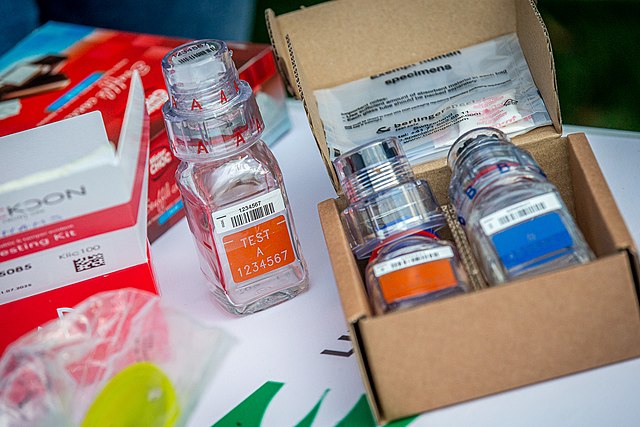Growth hormone (GH) or somatotropin, also known as human growth hormone in its human form, is a peptide hormone that stimulates growth, cell reproduction, and cell regeneration in humans and other animals. It is thus important in human development. GH also stimulates production of Insulin-like growth factor 1 (IGF-1) and increases the concentration of glucose and free fatty acids. It is a type of mitogen which is specific only to the receptors on certain types of cells. GH is a 191-amino acid, single-chain polypeptide that is synthesized, stored and secreted by somatotropic cells within the lateral wings of the anterior pituitary gland.
Flowchart showing hormonal regulation of growth
In competitive sports, doping is the use of banned athletic performance-enhancing drugs by athletic competitors, as a way of cheating. As stated in the World Anti-Doping Code by WADA, doping is defined as the occurrence of one or more of the anti-doping rule violations set forth in Article 2.1 through Article 2.11 of the Code. The term doping is widely used by organizations that regulate sporting competitions. The use of drugs to enhance performance is considered unethical, and is prohibited by most international sports organizations, including the International Olympic Committee. Furthermore, athletes taking explicit measures to evade detection exacerbate the ethical violation with overt deception and cheating.
Hicks and supporters at the 1904 Summer Olympics
Ilona Slupianek in 1981.
Controversial athlete Floyd Landis, shown here at the 2006 Tour of California, triggered a public scandal when caught doping to help his cycling.
Urine doping sampling security bottles





